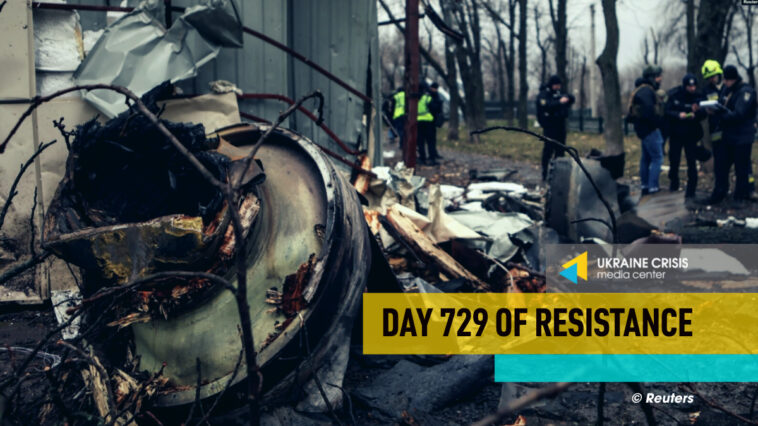Russia has used more than 20 North Korean ballistic missiles in attacks on Ukraine, the Security Service of Ukraine says. The Czech President has sourced up to 800,000 shells for Ukraine. Ukraine has the right to use F-16s to strike military targets in Russia, NATO Secretary General says.
Russia has fired more than 20 missiles supplied by North Korea into Ukraine
Russia has used more than 20 North Korean ballistic missiles in attacks on Ukraine since late December, the Security Service of Ukraine said Thursday.
The Russia-fired Hwasong-11 missiles — also known as KN-23 and KN-24 — have killed at least 24 civilians and injured more than 100 others in Ukraine, investigators claim.
The first time Russia used North Korean missiles was recorded on December 30, 2023, during the shelling of Zaporizhzhia region, the security service said. The next attack with North Korean missiles was recorded at the beginning of January in Kyiv.
Four residents of an apartment building in Kyiv died, and more than 50 were seriously injured, according to the statement.
Russians used North Korean missiles also to shell five frontline villages in Donetsk region in February, killing 17 civilians.
“The invaders also fired North Korean missiles at the private homes of Kharkiv residents and thereby killed three civilians. More than 60 residents of Kharkiv were seriously injured,” the security service said.
Czech President sources up to 800,000 shells for Ukraine
An unnamed Ukrainian security official confirmed to The New Voice of Ukraine that Czech Republic President Petr Pavel’s government has sourced up to 800,000 shells to get the ammunition to Ukraine. The number exceeds what the EU sent to Ukraine last year.
“The shells could be supplied from South Korea and Southern Africa. The contract is worth approx. USD two billion,” the official said.
The Czech President released the information to convince France to provide funds to buy the rounds. Paris has so far blocked contracts with third countries, giving preference to French companies.
Czech President Petr Pavel said in a speech at the Munich Security Conference on 17 February: “As far as I know, our companies have identified, variously around the world, up to 500,000 NATO 155mm caliber rounds and up to 300,000 122 mm caliber rounds, which can be on the Ukraine frontline in a few weeks if funding is found quickly.” Pavel said he will ask the U.S., Germany, Sweden and others to cover the transaction, he added.
In a letter to European partners last month, Ukraine’s Defense Minister, Rustem Umerov said Russia had achieved an advantage, assuming a three-to-one ammunition ratio. Ukraine’s shell shortage is intensifying, he added.
The EU’s chief diplomat Josep Borrell told reporters last month that the European Union will deliver around 524,000 shells to Ukraine by the original date, representing roughly 52 per cent of its target.
Ukraine has the right to use F-16s to strike military targets in Russia, NATO Secretary General says
Ukraine has the right to use F-16s to strike military targets in Russia in line with international law, but the decision will come from allies that will send the aircraft to Ukraine, NATO Secretary General, Jens Stoltenberg told Radio Liberty.
Answering a question about whether allies would send F-16 fighter jets to the country asking Ukraine not to use them to fire missiles into Russia, Stoltenberg said: “Policy on this is different among allies. This is Russia’s armed aggression against Ukraine with blatant violation of international law. Under international law, Ukraine has the right to self-defense. This also includes striking legitimate military targets – Russian military targets beyond Ukraine. This is international law.”
Stoltenberg told Radio Liberty, however, that the NATO alliance has “to listen to military experts as to exactly when we will be ready or when allies will be ready to start sending and delivering F-16s.”
The sooner, the better, he said. “At the same time, it should be an effective weapon with well-trained pilots, with good service systems available at the moment when we provide this mechanism to Ukraine,” the NATO Secretary General added.
“It’s impossible to say exactly when because it’s a dilemma,” Stoltenberg said. “We all want the F-16s to be there as soon as possible. At the same time, of course, the effect of the F-16 will be stronger and better with more trained pilots,” he continued. “And not only pilots, but also maintenance, personnel and all the support systems that must be in place.”




